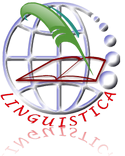THE ANALYSIS OF PROCESS IN SELECTED SPEECHES OF PRESIDENT SUSILO BAMBANG YUDHOYONO
DOI:
https://doi.org/10.24114/jalu.v2i4.941Abstract
Abstract One aim of this article is to show many kinds of speeches of process in speech. The example of speech is the speech of President Susilo Bambang Yudhoyono. The purpose of this journal is to find out types of processes, they are; material process, mental process, relational process, behavioral process, verbal process, and existential process. It was found that the types of processes in the five speeches of President Bambang Yudhoyono are 1387 verbs and classified the verb into 868 verbs as Material process (62.58%), 46 verbs as Mental process (3.31%), 130 verbs as Relational process (9.37%), 208 verbs as Behavioral process (15%), 25 verbs as Verbal process (1.80%), and 110 verbs as Existential process (7.94%). From the data, it could be known that the dominant process in the selected speech of President Susilo Bambang Yudhoyono was Material process. Keywords: process; speechDownloads
Issue
Section
Articles
License
Copyright (c) 1970 Margareth Fransisca Sinaga, Elia Masa Gintings

This work is licensed under a Creative Commons Attribution-ShareAlike 4.0 International License.
Authors who publish with this journal agree to the following terms:
- Authors retain copyright and grant the journal the right of first publication with the work simultaneously licensed under a Creative Commons Attribution License that allows others to share the work with an acknowledgment of the work's authorship and initial publication in this journal.
- Authors are able to enter into separate, additional contractual arrangements for the non-exclusive distribution of the journal's published version of the work (e.g., post it to an institutional repository or publish it in a book), with an acknowledgment of its initial publication in this journal.
- Authors are permitted and encouraged to post their work online (e.g., in institutional repositories or on their website) prior to and during the submission process, as it can lead to productive exchanges, as well as earlier and greater citation of published work (See The Effect of Open Access).
- This work is licensed under a Creative Commons Attribution-ShareAlike 4.0 International License.

